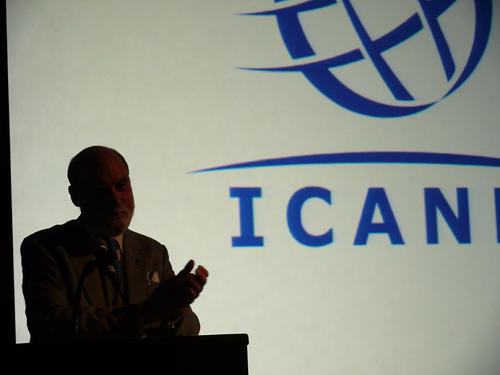Missing the gTLD deadline may cost firms

Applications for generic top-level domains (gTLDs) are open for three months from this week, but organisations that miss out or wait to see what their competitors do risk being left behind, according to Melbourne IT CEO Theo Hnarakis.
The Internet Corporation for Assigned Names and Numbers (ICANN) approved the proposal for gTLDs in June last year, which will see the release of new, generic, brand and geographic domain-name extensions, such as '.melbourne' and '.sydney'.
Organisations are already getting into the act, with global groups such as Unicef and Canon already confirming that they intend to apply for their own branded domain-name extension. However, unlike domain names across existing top-level domains such as .com or .org, where anyone can register available names at their own leisure, the first round of gTLDs applications will only be accepted for three months, between 12 January and 12 April.
According Hnarakis, organisations that miss the opportunity may find themselves in an unfavourable position.
"When it closes, it'll close and potentially won't reopen again for several years. If you miss out this window, potentially your competitors will have a two-, three- or four-year head start," he said.
"My advice to companies is that if at all in your future planning you see the internet as a critical part of your strategy, then this needs to be seriously considered."
Melbourne IT said that it has already received over 100 applications and 300 expressions of interest, adding that the industry is expecting 1500 gTLD applications globally. Of its applications, 20 of those are from Australian organisations that it says are mainly ASX100 companies. It expects that number to double in the next couple of months, providing Melbourne IT with an additional revenue stream.
Organisations thinking about purchasing a gTLD, but that are sitting out the first round to wait and see what their competitors do, may be playing to their rivals' tactics.
"A lot of companies are keeping [their applications] very, very guarded, because they don't want to enter into a competitive position. Everyone's got us on [non-disclosure agreements]. They do not want to be alerting their competitors that they're doing something in this area."
While Hnarakis was unable to state who was specifically interested in purchasing their own gTLD, he was able to shed some light on the industries that are jumping on-board.
"Certainly, financial services is showing enormous amounts of interest. Companies that are the early adopters to the internet to begin with are the verticals that are obviously showing interest, but we are seeing some of the later adopters come in, too. Media companies, financial services companies, airlines are showing interest [and], naturally, some big-brand technology companies, as well."
The application process isn't within the reach of most individuals, with the initial application costing US$185,000 and the registering entity required to further pay an annual fee of US$25,000, but, when the value of gTLDs were taken into account, Hnarakis said the price wasn't that expensive, using the current return on investment in the dotcom space as an example.
"Realestate.com sold recently for [allegedly] $8 million. Other generic names can sell for several million dollars as well. Applying for holidays in the dotcom space would be worth several million dollars. To actually own '.holidays' would be highly advantageous to someone."
The fees also aren't arbitrarily set either. According to Hnarakis, they are necessary to support the application process' screening and possible legal processes.
"It is not just looking at a three-page document. It is a 50-question, 300-page legal document that will need examination from ICANN. Governments have the opportunity to review these applications, and so do individuals and competitors. ICANN is building into the application cost the potential for contention for ... legal challenges against some of these [applications]. The cost is significant because of the amount of checks and balances that have been built in to ensure that an application that gets through ... has been thoroughly reviewed."
Although this process should guard against cybersquatting, US advertising groups, such as the US Association of National Advertisers (ANA), are not convinced that enough protection is in place.
Hnarakis, who is currently working with some of ANA's members, said he could relate to its concerns.
"I've certainly got empathy for their concerns. There's some issues around defensive registrations that ICANN could be doing more in. If it's a brand that is well known, that is protected within the intellectual property framework, then that trademark or those intellectual property owners should be given certain advantages, and not be forced to defensively register their names."
However, Hnarakis did not support all of ANA's views.
"I don't share their views that this won't create new opportunities. This will create new business models. This will enhance innovation on the internet, and provide more choice. Certainly, ICANN could be doing more to protect and limit the cost exposure of brand owners, but, from a point of view of innovation — early adopters jumping on this and taking advantage of it — that's what free enterprise is all about, isn't it?"
